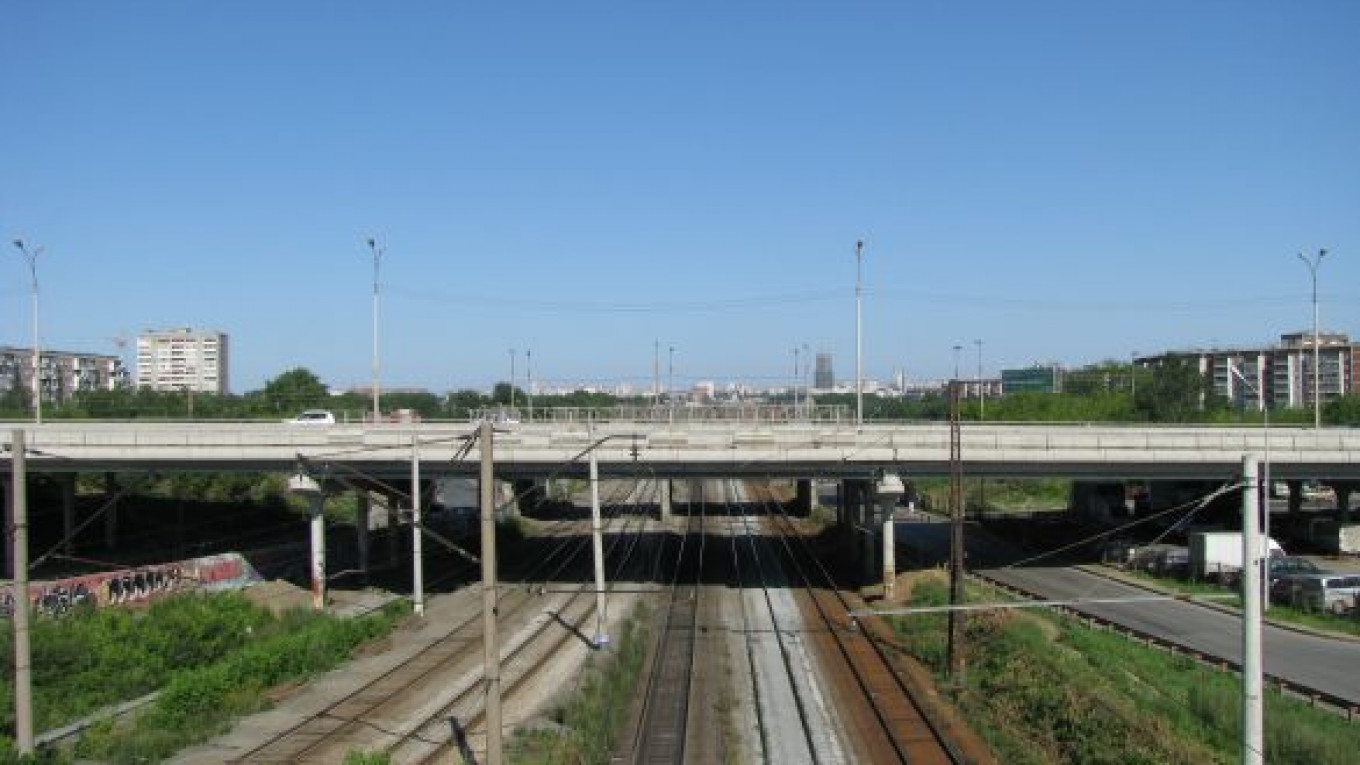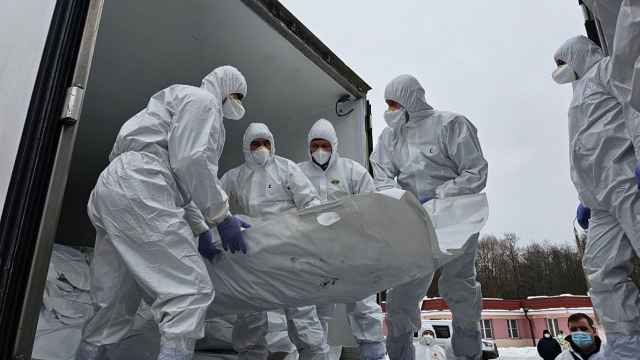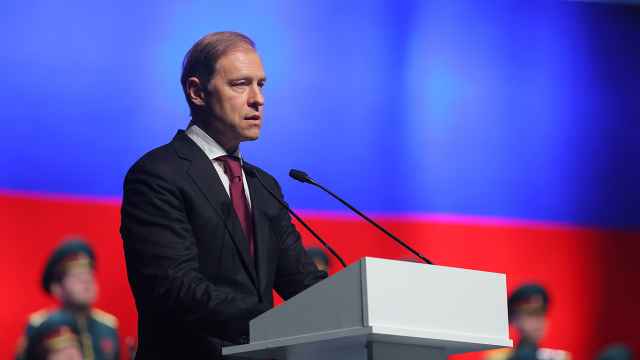The Finance Ministry on Wednesday criticized President Vladimir Putin's idea to use up to half of the $86.5 billion stored in the National Welfare Fund to finance large-scale investment projects.
The initiative, if brought to life, poses risk to implementing the country's pension reform, since the sovereign fund is the major instrument of its financing, Finance Minister Anton Siluanov said.
Siluanov made his comments at an investment conference organized by Vneshekonombank just a month after Putin announced the plan to siphon 450 billion rubles ($13.6 billion) from the National Welfare Fund to pay for big infrastructure projects.
The projects to receive financing include building a high-speed railway line between Moscow and Kazan, modernizing the Trans-Siberian Railroad and reconstructing the Central Ring Road in the Moscow region, the president said at the St. Petersburg International Economic Forum in June.
Putin also said that up to half of the fund's money would be subsequently invested into other long-term projects in Russia.
However, the idea of using the fund's money for anything beyond financing the three announced projects did not find support with Siluanov.
"I'm very skeptical about further channeling the National Welfare Fund money into investment projects," Siluanov told journalists on the sidelines of the VEB conference. He warned that one possible risk of such investment was a deficit of funding for the upcoming pension reform.
"If we squander our national welfare [fund] on a big number of projects, we won't see any effect," he said.
The National Welfare Fund is aimed at funding Russians' retirement pensions and ensuring stability of the country's Pension Fund. Its size stood at $86.47 billion as of July 1, according to the Finance Ministry's website. The other sovereign fund is a rainy day Reserve Fund worth $84.7 billion.
Siluanov pushed for investing the money stored in the National Welfare Fund into stock market instruments, which he said can provide higher returns than investment projects.
However, head of Vneshekonombank Vladimir Dmitriyev argued that "a reasonable balance can be reached between investing into infrastructure and the stock market."
Dmitriyev said his bank could carry out analyses of the potential investment projects to identify those involving low risk and offering high returns. VEB is also able to monitor the efficiency of how the fund's money is spent, he told reporters on the sidelines of the conference.
Sharing the responsibility with the companies implementing such projects could "allow us to rationally and safely invest money from the National Welfare Fund into infrastructure," Dmitriyev said.
Putin, who met with Dmitriyev last week, proposed that VEB manage the 450 billion rubles to be invested in the three mega projects. The president also called for the development bank to cooperate with the Russian Direct Investment Fund — the state-financed investment vehicle – to help attract foreign investors to co-finance those projects.
"The 450 billion rubles … are, in fact, only starting capital," Putin said.
Finding sources of long-term investment as a major driver of the global economic growth is on the agenda of the summit of G20 leaders that Russia will host in September, Siluanov said.
"In the current situation, when bank lending is gradually being slashed and possibilities of the budget are limited, attracting institutional investors like pension funds, insurance companies and investment of sovereign funds are important themes … to discuss," he said.
Finance ministers of the world's 20 major economies who are scheduled to meet in Moscow on Friday and Saturday will set the financial agenda for the summit, he said. Siluanov added that other key issues the ministers would propose for discussion were taxation transparency and managing sovereign borrowings of countries with a high debt burden.
"This week, we must prepare the agenda for the countries' leaders, who will meet in September, so the finance ministers will have a busy agenda as well," he said.
Contact the author at [email protected]
A Message from The Moscow Times:
Dear readers,
We are facing unprecedented challenges. Russia's Prosecutor General's Office has designated The Moscow Times as an "undesirable" organization, criminalizing our work and putting our staff at risk of prosecution. This follows our earlier unjust labeling as a "foreign agent."
These actions are direct attempts to silence independent journalism in Russia. The authorities claim our work "discredits the decisions of the Russian leadership." We see things differently: we strive to provide accurate, unbiased reporting on Russia.
We, the journalists of The Moscow Times, refuse to be silenced. But to continue our work, we need your help.
Your support, no matter how small, makes a world of difference. If you can, please support us monthly starting from just $2. It's quick to set up, and every contribution makes a significant impact.
By supporting The Moscow Times, you're defending open, independent journalism in the face of repression. Thank you for standing with us.
Remind me later.






